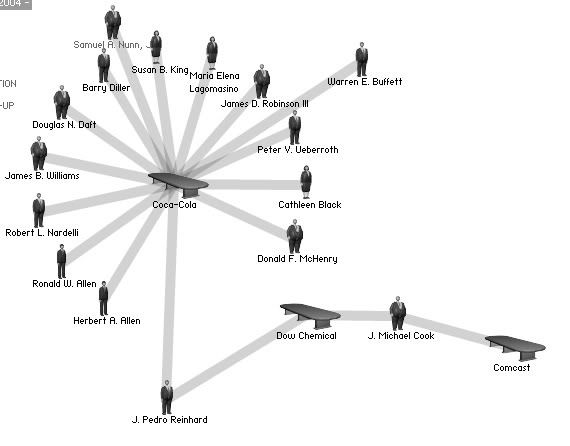(no subject)
I finally understood the meaning of "web 2.0" as a kind of Higher Level of what the internet could be based on rich online applications (network-as-platform), social networking, storing personal (or not-so-personal) information and data in online databases or "space rental" sites. Thus (controversially) the exciting idea of Web 3.0 would be a "semantic web" in which information online could be "read" by aggregators, search engines, etc. as contextual and meaningful information rather than series of unconnected data. How sweet! The attempts to create a semantically meaningful and legible web have involved coding languages that somehow give the content more contextual value...these include XML, RDF, etc. Firefox plugin Piggy Bank works on the other side, extracting and storing data about meaning from websites.
One outcome of opensource efforts to "semanticize" the web is a database of Neuroscience-related papers that can be searched by phrase more accurately and satisfyingly than via Google or another "2.0" search engine...ideally, the computer will be able to understand human input in all of the semantic, syntactic, and pragmatic capacities that human minds are able to untangle in moments. It seem to me like the evolutionary "goal" achieved in Web 3.0 is answering the user's question with exactly the right answer.
Although programming and computer skills divide the web community into the Developers and Users, the line is becoming increasingly blurred as users learn basic programming that is necessary to tweak the computer to maximal customizedness. Livejournal and Myspace users and bloggers may learn basic HTML or CSS in order to customize their own site and text format. However, users are also provided with analogous spaces for development in which a knowledge of the underlying coding isn't necessary, such as "page appearance generators" found for nearly every personal website-site out there.
of additional semi-related interest:
The Friend-of-a-Friend Project "is creating a Web of machine-readable pages describing people, the links between them and the things they create and do...The FOAF ("Friend of a Friend") project is a community driven effort to define an RDF vocabulary for expressing metadata about people, and their interests, relationships and activities. Founded by Dan Brickley and Libby Miller, FOAF is an open community-lead initiative which is tackling head-on the wider Semantic Web goal of creating a machine processable web of data."
They Rule "aims to provide a glimpse of some of the relationships of the US ruling class." They're bringing connections of power to light...super cool.
Space Colony One "a reprogenetic program dedicated to cultivating genetically ideal space colonization crews through computer-aided matching and breeding over several generations."
--> I'm considering sending in my DNA. Check it out and let me know whether that would be a really, really bad idea.
One outcome of opensource efforts to "semanticize" the web is a database of Neuroscience-related papers that can be searched by phrase more accurately and satisfyingly than via Google or another "2.0" search engine...ideally, the computer will be able to understand human input in all of the semantic, syntactic, and pragmatic capacities that human minds are able to untangle in moments. It seem to me like the evolutionary "goal" achieved in Web 3.0 is answering the user's question with exactly the right answer.
Although programming and computer skills divide the web community into the Developers and Users, the line is becoming increasingly blurred as users learn basic programming that is necessary to tweak the computer to maximal customizedness. Livejournal and Myspace users and bloggers may learn basic HTML or CSS in order to customize their own site and text format. However, users are also provided with analogous spaces for development in which a knowledge of the underlying coding isn't necessary, such as "page appearance generators" found for nearly every personal website-site out there.
of additional semi-related interest:
The Friend-of-a-Friend Project "is creating a Web of machine-readable pages describing people, the links between them and the things they create and do...The FOAF ("Friend of a Friend") project is a community driven effort to define an RDF vocabulary for expressing metadata about people, and their interests, relationships and activities. Founded by Dan Brickley and Libby Miller, FOAF is an open community-lead initiative which is tackling head-on the wider Semantic Web goal of creating a machine processable web of data."
They Rule "aims to provide a glimpse of some of the relationships of the US ruling class." They're bringing connections of power to light...super cool.

Space Colony One "a reprogenetic program dedicated to cultivating genetically ideal space colonization crews through computer-aided matching and breeding over several generations."
--> I'm considering sending in my DNA. Check it out and let me know whether that would be a really, really bad idea.